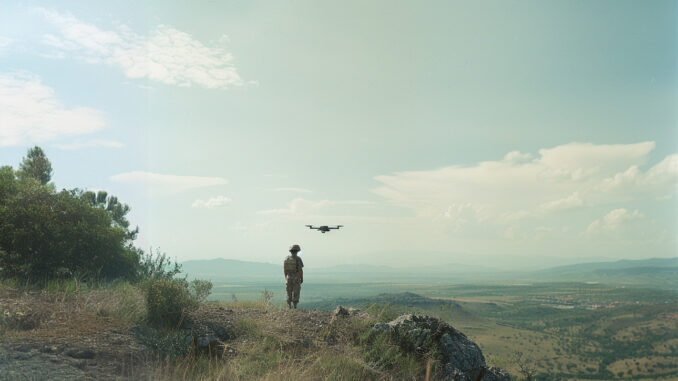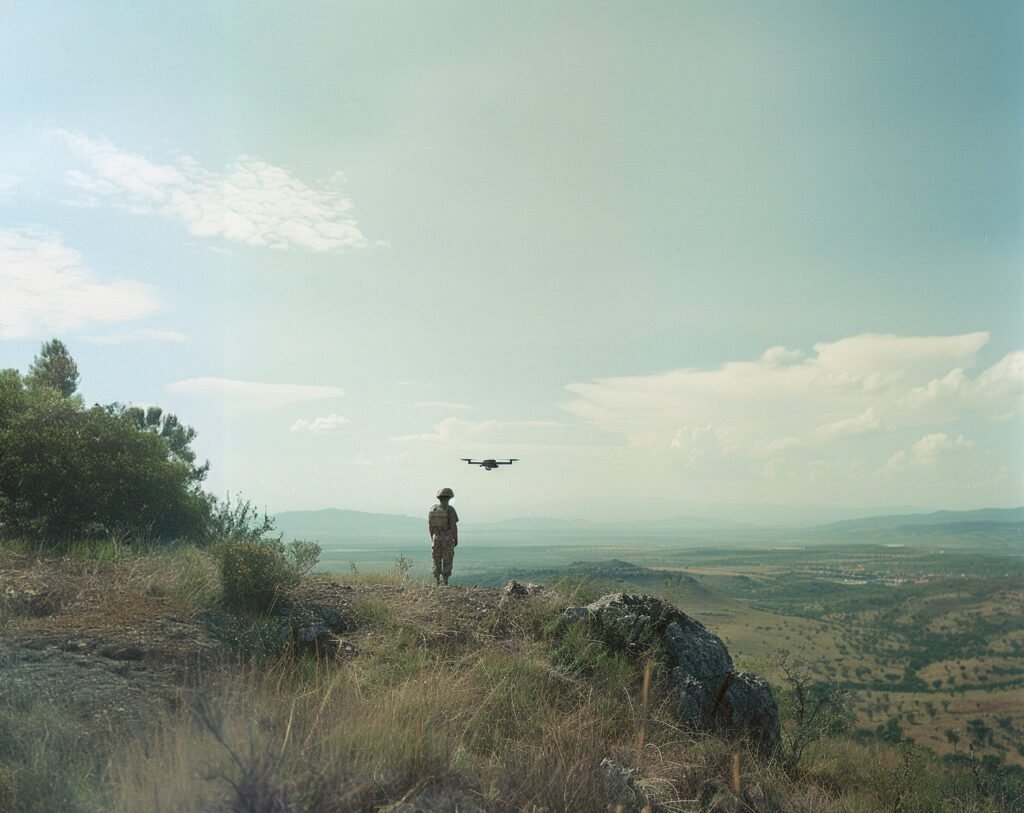
France has signed a pact to develop sovereign capabilities in military UAVs weighing less than 150 kg, with the aim of strengthening its national defence and exports.
France has signed a pact with its drone industry to develop sovereign capabilities in unmanned aircraft systems (UAS) weighing less than 150 kg. The initiative is designed to support national requirements and boost production capacity in the event of conflict. The pact, signed by some fifty companies, aims to structure a fragmented industry and encourage investment in UAV technologies. This development is crucial to maintaining operational superiority and responding to new threats on the battlefield.
Background and objectives of the UAV Pact
Impact of UAVs in modern conflicts
Unmanned aerial vehicles (UAVs) have demonstrated their significant impact on modern battlefields, as illustrated by the conflict in Ukraine. These unmanned aircraft systems (UAS) play a crucial role in surveillance, intelligence and targeted strikes. Recognising this trend, France is seeking to develop its own military drone capabilities, particularly those weighing less than 150kg.
President Emmanuel Macron has stressed the need for France to have national industrial capabilities that can respond quickly to the needs of a war economy. This initiative aims to ensure that France can meet its domestic needs while also being able to export UAVs to its allies and partners.
Structuring a fragmented industry
The drone industry in France is currently fragmented, made up of many small players focused mainly on the commercial market. The pact, launched by Defence Minister Sébastien Lecornu at the opening of the Eurosatory show on June 17, aims to structure and develop this industry. Around 50 major French companies and SMEs have signed up to the pact, demonstrating their commitment to working together to strengthen the country’s drone capabilities.
The aim is to create a more coherent and integrated industry, capable of responding rapidly to technological developments and market requirements. This includes the development of platforms, military systems and payloads for UAVs.
Benefits and challenges of the initiative
The development of a national drone industry offers a number of advantages. It reduces dependence on foreign suppliers, ensures greater security of supply and strengthens France’s strategic autonomy. In addition, a strong, integrated industry can better meet the needs of the French armed forces and offer competitive products on the international market.
However, the development of military UAVs can be costly, often exceeding the annual turnover of the companies involved. It is therefore crucial to secure sufficient investment and develop effective acquisition and export strategies.

Technology development and acquisition strategies
Advanced technologies and payloads
One of the priorities of the pact is the development of payloads for UAVs that offer an advantage in the electromagnetic environment. Colonel Hervé Mermod of the French General Staff stressed the importance of these technologies in maintaining operational superiority. Payloads can include advanced sensors, secure communication systems and electronic countermeasures.
Partnerships and industrial collaboration
The pact also encourages partnerships between small businesses and major defence contractors in France. This collaboration aims to combine the innovation and agility of SMEs with the production capabilities and resources of large companies. General Erwan Salmon, from the French Defence Procurement Agency (DGA), stressed the need for France to “keep pace” with technological developments and standardise systems to improve efficiency and interoperability.
Acquisition and export strategy
One of the next steps for the drone pact is to develop a roadmap of “technological building blocks” specific to defence needs. This includes an acquisition and export strategy for UAV systems. The aim is to create a clear framework for the development, acquisition and implementation of UAV technologies, while maximising export opportunities.
Strategic consequences and future prospects
Strengthening operational superiority
The development of military UAVs is crucial to maintaining the French army’s operational superiority. UAVs can be used for reconnaissance, surveillance, targeting and attack missions, offering greater flexibility and responsiveness on the battlefield. Drone swarms, in particular, are seen as essential for maintaining a tactical advantage.
Impact on the defence industry
The drone pact could stimulate innovation and growth in France’s defence industry. By encouraging investment and collaboration, it can help overcome the cost and complexity of drone development. In addition, a robust drone industry can strengthen France’s position as a leader in military technology.
Challenges and opportunities
Despite the potential benefits, the development of military UAVs also poses challenges. Development costs can be high, and international competition in this field is fierce. It is therefore crucial that France continues to invest in research and development, and creates strategic partnerships with other countries and organisations to remain competitive.
The drone pact signed by France represents an important step towards strengthening national military capabilities and developing a sovereign drone industry. By structuring and developing this fragmented industry, France can better meet its defence needs and seize opportunities on the international market. The next steps, including technology development, procurement strategies and export, will be crucial to ensure the success of this initiative. With close collaboration between SMEs and large companies, and strong government support, France can look forward to becoming a world leader in military UAVs.
War Wings Daily is an independant magazine.